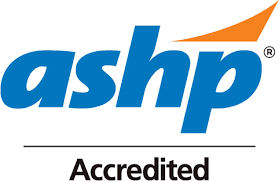Program Purpose

PGY1 residency programs build upon Doctor of Pharmacy (PharmD) education and outcomes to develop pharmacist practitioners with knowledge, skills, and abilities as defined in the educational competency areas, goals, and objectives. Residents who successfully complete PGY1 residency programs will be skilled in diverse patient care, practice management, leadership, and education, and be prepared to provide patient care, seek board certification in pharmacotherapy (i.e., BCPS), and pursue advanced education and training opportunities including postgraduate year two (PGY2) residencies.
The Valley Hospital PGY1 Community-Based Pharmacy Residency program offers training, education, and practice experience in the following pharmacy services: medication management (including comprehensive medication management and targeted medication intervention services with follow-up; health and wellness; immunizations, disease state management incorporating medication management, and care transitions including medication reconciliation and medication management; and patient-centered medication distribution).
Our goal is to prepare our PGY1 Community-Based Pharmacy Resident to practice in outpatient, community, and retail settings, including but not limited to:
- PGY2 (Ambulatory Care and others)
- Specialty pharmacy
- Infusion centers & home infusion
- Retail pharmacies
- Health & wellness
- Immunizations
- Population Health
- Telemedicine
- Transitions of care
- Meds-to-beds
- Medication histories & reconciliation
- Ambulatory Care & Disease State Management
- Community Outreach
Program Description
The resident annual schedule is determined based on the incoming interests of the resident. The length of time for each learning experience is flexible to accommodate the special interests of the resident. Learning experience offerings are outlined below.
Estimated total % emphasis per competency area:
- Patient care - 70%
- Leadership & management - 15%
- Advancement of community-based practice and improving patient care - 10%
- Teaching, education, and dissemination of knowledge - 5%
Pharmacist Patient Care Process (PPCP) is utilized for patient care.
Learning Experiences
Required Rotations
- Orientation
- Independent practice/Staffing
- Sterile Compounding/Infusion Center
- Specialty Pharmacy
- Population Health-Value-Based Care & Telemedicine
- Emergency Department - Transitions of Care
- Clinical Trials & Investigational Drugs/Biostatistics
- Heart Failure Clinic - Transitions of Care
- Leadership & Management
Elective Rotations (choice of 2)
- Oncology for the Community Patient
- Internal Medicine - Transitions of Care
- Compounding Pharmacy - Sterile/Non-Sterile/Hazardous
- Ambulatory Care - Telemed/Refill Pilot
- Palliative Care
Additional Experiences
- Teaching certificate/precepting students
- Community outreach
- Research project

